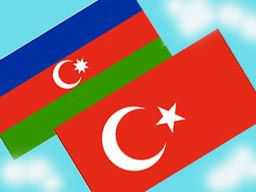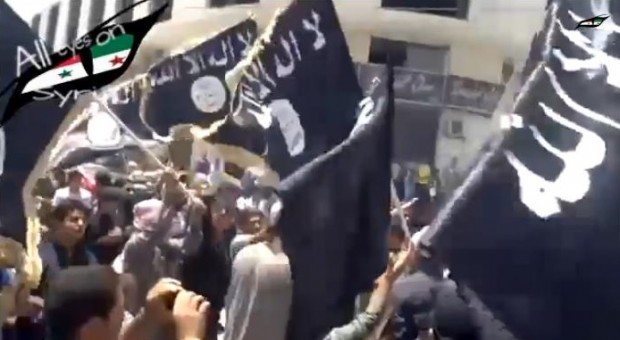
Size matters
Wednesday, July 22, 2009
SONER CAGATAY
There are three categories of countries in international politics: global powers that can afford to do nearly everything they want; small and weak states that need to latch on to large states to protect their interests; and middle-sized states, which, though they are not powerful enough to shape global affairs by themselves, wield international influence through alliances and by building regional constituencies.
For a long time, Turkey was in the category of small states, attaching its foreign policy unequivocally to that of the United States. Over the past decade, under the rule of the Justice and Development Party, or AKP, Turkey has graduated to the class of middle-sized states. On July 15, U.S. Secretary of State Hillary Clinton recognized this development, calling Turkey an “emerging global power.” But what are the parameters of Ankara’s middle-sized power status? Now that it is in a new league of states, should Turkey attempt life without America, or does Ankara still need Washington?
Turkey not only has NATO’s second largest military, but also is a new member of the G-20. What is more, thanks to the AKP’s activist foreign policy, Turkey wields influence across many regions, from the Middle East to the Eastern Mediterranean, and Central Asia. Ankara stands at a historic juncture and possesses the ability to shape politics beyond its borders if it pays attention to the two following parameters.
First, Turkey can maintain its newfound global role only if it builds international constituencies. To this end, Ankara needs to project its political message and soft power in a consistent way. If Ankara vacillates overseas, its newfound international influence will wane.
So far, Ankara has struggled in this regard. Take China, for example. Turkey voiced strong criticism of the Chinese crackdown against the Uyghurs in early July, but has avoided taking a stance on the Tibet issue. Ankara will need to stand for human rights for both Muslim Uygurs and Buddhist Tibetans alike if it is to become a credible force in world politics. In this regard, Turkey should not only guard its existing constituencies, such as the Uygurs, but also reach out to and build new ones, such as the Tibetans. As a middle-sized power in global politics, Turkey needs to prove that its heart beats for Muslims and non-Muslims, and Turks and non-Turks, with the same strength.
Along the same vein, Turkey needs to project its soft power consistently in the Middle East. In this regard, too, Ankara has not had a perfect record. When Hamas emerged victorious in the 2006 Palestinian elections, Ankara voiced support for Hamas’ electoral victory in the name of democracy. Yet in the aftermath of the June 2009 elections in Iran, amidst widespread allegations of vote rigging, Ankara did not side with democracy, but instead congratulated Ahmadinejad on his “electoral victory” even as Iranians were being shot in the streets of Tehran. If Turkey aims to wield influence in the Middle East by promoting itself and its values, such as democracy, it should do so for both Palestinians and Iranians.
The second parameter to ensure Turkey’s middle-sized power status is maintaining an alliance with a global power. This will help Ankara protect its interests in areas of the globe beyond its reach, as well as in organizations where it could be dwarfed by larger powers.
This is where Ankara’s relationship with the United States comes in. Fortunately, Turkey no longer is a foregone conclusion in Washington’s mind. But Ankara’s newfound importance in Washington should not be interpreted as the time for Turkey to conclude its long alliance with America. Like all middle-sized countries, Turkey can protect its interests better when allied with a global power. Take Turkey’s European Union, or EU, process, for instance. Turkey would not be in accession talks with the EU today if not for Washington’s continued backing.
In a similar fashion, Washington’s assistance to Turkey matters inside NATO. Ankara’s position in this alliance, which includes other middle-sized powers larger than Turkey, would be weaker if it were isolated. Turkey’s ties to Washington, in this respect, are essential. Washington’s motto in NATO, “Never leave the Turks alone,” best explains the United States’ utility to Turkey in NATO, as does Turkey’s access to U.S. military technology, a perk of its NATO membership.
To be sure, the benefits of Turkey’s relationship with the United States are mutual. Just as Turkey profits from its relationship with a global power, Washington needs the new Turkey in many places, such as Afghanistan and the Middle East. This new rapport requires adult thinking on both sides, and will soon be tested as Washington withdraws troops from Turkey. This test will happen regardless of whether or not the U.S. pulls its military out of Iraq through Turkey, and the question is whether the two sides will act as mature partners.
Far from looking for a life without America, Turkey should be looking for an upgraded relationship with the United States. Turkey has become a middle-sized power, size matters, and Ankara’s challenge is to step up to the plate.
=======================
* Regional trend: Turkey’s rise
Turkey is continuing along its ascendant path, in line with STRATFOR’s expectations. The priority for Turkey is to expand its power in the Middle East, beginning with Iraq, where the United States is taking a step back from day-to-day security operations and where Turkey is taking a step forward in managing the country’s rival factions. The Turks are counting on Iraqi energy to boost Ankara’s profile in the region as a major east-west energy transit hub. But with Iraq bogged down in sectarian feuds, Turkey has its work cut out in trying to bring its own version of order to the country. The Turks will continue building relations with key Iraqi politicians, but will also take a more nuanced approach in dealing with the Kurds, using less military coercion and more political and economic persuasion. By playing on Kurdish fears of encirclement by Iraqi Arabs, the Turks will aim to persuade the Kurds that Turkey can guarantee Kurdish political and economic security, as long as the Kurds play by Turkey’s rules – which include abandoning any separatist ambitions. Recognizing the problems the United States is encountering in its Iran strategy, the Turks will be careful to maintain a healthy relationship with Tehran. The time may not be ripe for Iran to seriously engage the West, but Turkey is positioning itself to become a mediator in this long-standing dispute. Once Turkey reaches beyond the Middle East, the road gets rougher. Turkey’s ruling Justice and Development Party is attempting a complex balancing act between the East and West in trying to create the geopolitical space for Turkey’s expansion. Ankara sees itself as an independent player and has no interest in becoming a pawn in the ongoing U.S.-Russian struggle over Eurasia. Thus, Turkey must flirt with multiple options and act as unpredictably as possible in conducting its foreign affairs so that it does not permanently breach relations with either side. To this end, Turkey will entertain deals on non-Russian energy routes like the Nabucco pipeline and push for EU membership to keep one foot in the West, but will also work closely with the Russians on energy and defense deals to avoid trouble with Moscow and keep its Russian-chaperoned negotiations with Armenia alive. Turkey is likely to encounter the most resistance to its resurgence in former Soviet territory. The Turkish government continues to push a pan-Islamic and pan-Turkic agenda to raise its profile among Turkic-speaking peoples in the Caucasus and Central Asia, but a number of these post-communist regimes – Azerbaijan and Uzbekistan, in particular – are extremely wary of Turkey’s intentions and increasingly Islamist branding. This simmering backlash could give Russia additional leverage in countering Turkey’s regional rise.
__._,_.___
 Turkey’s diplomatic missions will provide services to Azeri citizens. Turkey’s Ambassador in Baku, Hulusi Kılıç, said that in countries where Azerbaijan has no diplomatic mission Azeri citizens could receive diplomatic services from Turkish missions. Elhan Poluhov, spokesman for the Azeri Foreign Ministry, said that Turkey’s friendly proposal for providing services to Azeri citizens was accepted by his ministry.
Turkey’s diplomatic missions will provide services to Azeri citizens. Turkey’s Ambassador in Baku, Hulusi Kılıç, said that in countries where Azerbaijan has no diplomatic mission Azeri citizens could receive diplomatic services from Turkish missions. Elhan Poluhov, spokesman for the Azeri Foreign Ministry, said that Turkey’s friendly proposal for providing services to Azeri citizens was accepted by his ministry.

